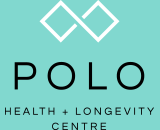- ABOUT US
- SERVICES
- TREATMENTS
- WEIGHT LOSS
- AESTHETICS
- Acne Solutions
- Neuromodulators
- Dermal Fillers
- Facials/Leg Veins
- Scar Revisions
- Sculptra
- IPL Photofacial
- Microneedling
- Microblading
- Platelet Rich Plasma (PRP)
- Mesotherapy/Lipodissolve
-
Fat Reduction»
- Laser Hair Removal
-
Facial Contouring»
- Lip Neutralization
- Lip Tattoo
- Latisse
- Alumier MD
- Zo Skin Health
- IV THERAPY
- BOOK NOW
Nutritional Counseling Program

Nutrition and maintaining a healthy diet is a critical aspect in treating any condition, and cancer is no exception! Poor diet raises many risk factors for specific cancer types and the development of cancer. Special dietary changes are crucial, which take into account any conventional treatments that patients may be undergoing (chemo/radiation), the state of health of the patient and the progression of the disease.
Dietary recommendations will vary from patient to patient, and will depend on whether the patient is undergoing chemo/radiation, whether their cancer is slow growing or aggressive, and whether patients are at high risk for cancer, or have a past medical history of cancer and are looking for cancer prevention.
Overall the goals of clinical nutrition include the following:
1. Achieve and maintain a healthy weight. When patients are overweight, they put themselves at risk for increased inflammation. On the other end of the spectrum, patients that are underweight are often malnourished, which negatively impacts the immune system. Creating a diet plan that takes into account what a patient can tolerate, depending on where they are in their treatment, is invaluable.
2. Decrease toxic burden:: toxins can accumulate in the body, and to some extent we have little control over some environmental factors which increase toxic load and subsequently the risk of cancer development and growth. However, the toxins associated with foods that we consume can be minimized so as to reduce accumulation within the body. Alternatively, certain foods can be added to support the liver and assist in it's ability to remove toxins from the body.
3. Slow disease progression:reducing insulin resistance and blood sugar levels helps remove fuel that feeds cancer cells, limiting the cancer's ability to grow and migrate to other parts of the body.
4. Reduce side effects of conventional treatments: (nausea, cachexia, immunosuppression). Individual diets are tailored to support conventional treatment, reduce side effects and increase treatment outcome.
5. Improve immune function:: diets are designed to be of high nutrient density to provide adequate support to the cells of the body, especially the immune cells.
Dr. Jamieson provides his patients with a nutritional counselling program. Individualized menu plans are provided to optimize nutrient intake, outlining what and when foods should be consumed, how foods should be prepared (cooking methods, proper oils, medicinal herbs and spices to be used), where and how foods should be purchased, and which foods should be avoided/minimized and why. The more understanding a patient has about their own nutritional needs around their condition, the more successful they are with adhering to their diet.
Polo Health
Polo Health + Longevity Centre
711 Columbia Street
New Westminster, BC V3M 1B1
Located in the Heart of New Westminster, BC
and proudly serving Vancouver and the
entire lower mainland,
T: 604-544-7656
F: 604-544-7657
E: info@polohealth.com
Services & Treatments
- Naturopathic Medicine (N.D.)
- Functional Medicine (M.D.)
- Executive Physicals
- Medical Aesthetics
- Registered Massage Therapy
- Registered Acupuncture
- Integrated Cancer Care
- Compounding Pharmacy
- IV Therapy
- Pain Management
- Chelation Therapy
- Mesotherapy
- Acupuncture
- Bio-Identical Hormone Therapy
- Male Hormone Replacement Therapy
- Labs
- Weight Loss
- Women's Health
- Men's Health
- Pediatrics
- Vitamin B-12 Shots
Cancellation Policy
Your appointment time is reserved just for you. A late CANCELLATION or NO-SHOW leaves an unfilled gap in the practitioner's schedule that could have been filled by another patient in need. As such, we require 24 hours notice for any CANCELLATION or changes to your appointment. Patients who provide less than 24 hours notice, or NO SHOW their appointment, will be charged a CANCELLATION OR NO SHOW fee of $100 to the card on file. We understand that emergencies happen, but we kindly ask for as much notice as possible so we can continue to provide consistent care to all patients.
No other appointment will be booked until this fee is paid.
Appointments are subject to change as per practitioner’s schedule
